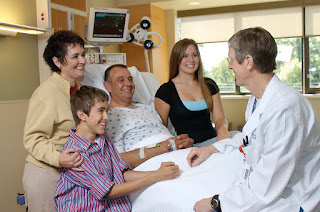Understanding a Family Medicine Residency
Unlike doctors and surgeons who specialize in specific diseases or conditions, a family medicine practitioner will be trained to recognize, diagnose and treat the different basic health situations that can impact the lives of all family members from children to the elderly. Choosing a residency in this field will not prepare you to be a brain surgeon, but it will enable you to deliver comprehensive, quality care when people need it most. This makes the field seem basic, but it is in fact quite complex - a family medicine residency program will prepare participants for different medical situations that every individual may face throughout their lives.
Though there is a standard educational plan, a Franklin family medicine residency allows for focus on specialty areas like women’s health, pediatrics and public health through the course selection of relevant electives. These differences allow people to explore the areas of family medicine that truly interest them, and give them a chance to branch out if they choose. During the time spent in the residency, participants will learn a variety of real life skills that will make them valuable assets to any facility after graduation.
What Happens After Completing a Family Medicine Residency?
After completion, many participants find it easy to obtain jobs in the field, especially if they have chosen a specialty focus with their electives. After a family medicine residency has been completed, hospital employees are able to diagnose, treat, provide preventative care, manage conditions, and even work with specialists to help patients truly do what is best for themselves. A family medicine practitioner is the one tasked with caring for people as they age and find new health issues to concern themselves with; they are seen through the years and on a routine basis. Essentially, this type of practitioner is the “face” of their respective facility, and the one that patients will come to associate their visits with.
Though it takes time and effort to complete a family medicine residency program, the time spent doing so will be worthwhile to many more people than the students themselves. People need medical care for things like general aches and pains, chronic conditions and for things like physicals, health screenings and immunizations; it is not just for emergencies or severe conditions, and a family medicine practitioner is just the right person to provide it, no matter what the case may be. Long after leaving the program, people will find that they continue to learn each day, increasing their knowledge and skills to better provide care for those who depend on and trust in them.

No comments:
Post a Comment